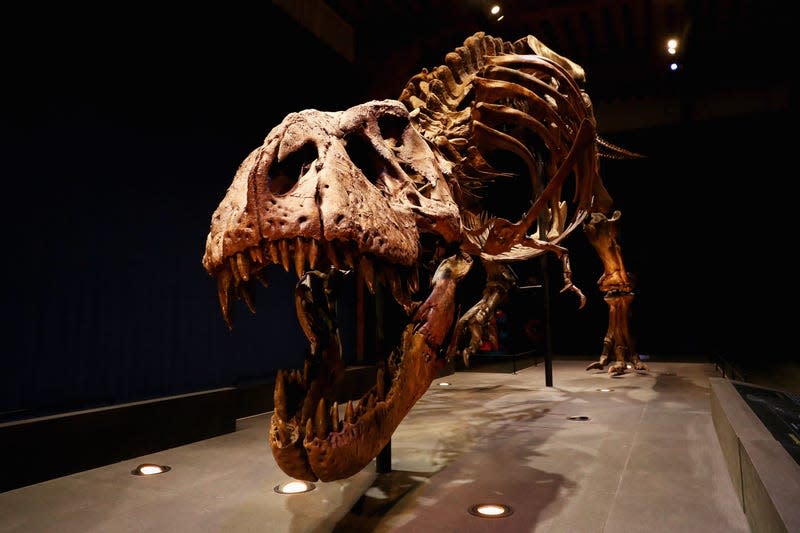Smarter Than Monkeys? Scientists Challenge Claim of T. Rex Intelligence

Tyrannosaurus rex was just about as smart as modern crocodiles and other reptiles, according to a team of researchers that investigated recent claims that the Cretaceous predators may have been as smart as monkeys.
In its work, the team specifically referenced a paper published last year in the Journal Comparative Neurology. Written by the neuroscientist Suzana Herculano-Houzel, the paper inferred that theropods like Tyrannosaurus had “monkey-like” numbers of neurons, “which would make these animals not only giant but also long-lived and endowed with flexible cognition.”
The new team’s paper pushes back on those claims, arguing that theropod dinosaurs probably had “significantly lower neuron counts than previously proposed”; the team added that neuron count and relative brain size are “flawed” proxies for measuring ancient animals’ smarts and other aspects of the creatures’ biologies.
“We argue that it’s not good practice to predict intelligence in extinct species when neuron counts reconstructed from endocasts are all we have to go on,” said Kai Caspar, a biologist at Heinrich Heine University Düsseldorf and the study’s lead author, in a University of Bristol release.
Dino organs—including brains—don’t preserve particularly well over tens of millions of years. When it does, it tends to be stuff like dinosaur skin, not internal organs. Indeed, the oldest fossilized skin is nearly 300 million years old, making it much more ancient than T. rex. Thus, scientists turn to other lines of evidence to determine how bright the animals were.
Herculano-Houzel’s paper used an existing database of neuron counts in extant sauropsids (a group that includes birds and squamates) and scaled it to dinosaurs and pterosaurs, which have been extinct for about 66 million years. “Readers should analyze the evidence and draw their own conclusions,” Herculano-Houzel told the LA Times. “That’s what science is about!”
The animal kingdom has a bevy of intelligent creatures; when Gizmodo asked experts which animal might develop human-level intelligence in the future, they had some interesting—and diverse—answers. Plenty of animals (including reptiles!) use tools, and some (besides monkeys) exhibit self-awareness, even if they still fall for magic tricks. But it’s easier to study the animals around today, than to extrapolate the intelligence of an animal whose fossilized brains aren’t even around to poke and prod, much less a living creature to put through tests.
“The possibility that T. rex might have been as intelligent as a baboon is fascinating and terrifying, with the potential to reinvent our view of the past,” said Darren Naish, a paleozoologist at the University of Southampton and co-author of the paper, in the same release. “But our study shows how all the data we have is against this idea. They were more like smart giant crocodiles, and that’s just as fascinating.”
Theropods—and especially T. rex—attract a distinctive degree of fervor. After all, they were particularly fearsome predators and have an outsized presence in popular culture compared to other dinosaurs. Even if T. rex wasn’t as smart as modern monkeys, it’s still a very scary animal. I’d rather researchers debate the intelligence of the long-gone T. rex than try some ill-fated experiment to see how clever they are when alive...I think I’ve read that script before.
More: Which Animal Will Develop Human-Level Intelligence in the Future?

